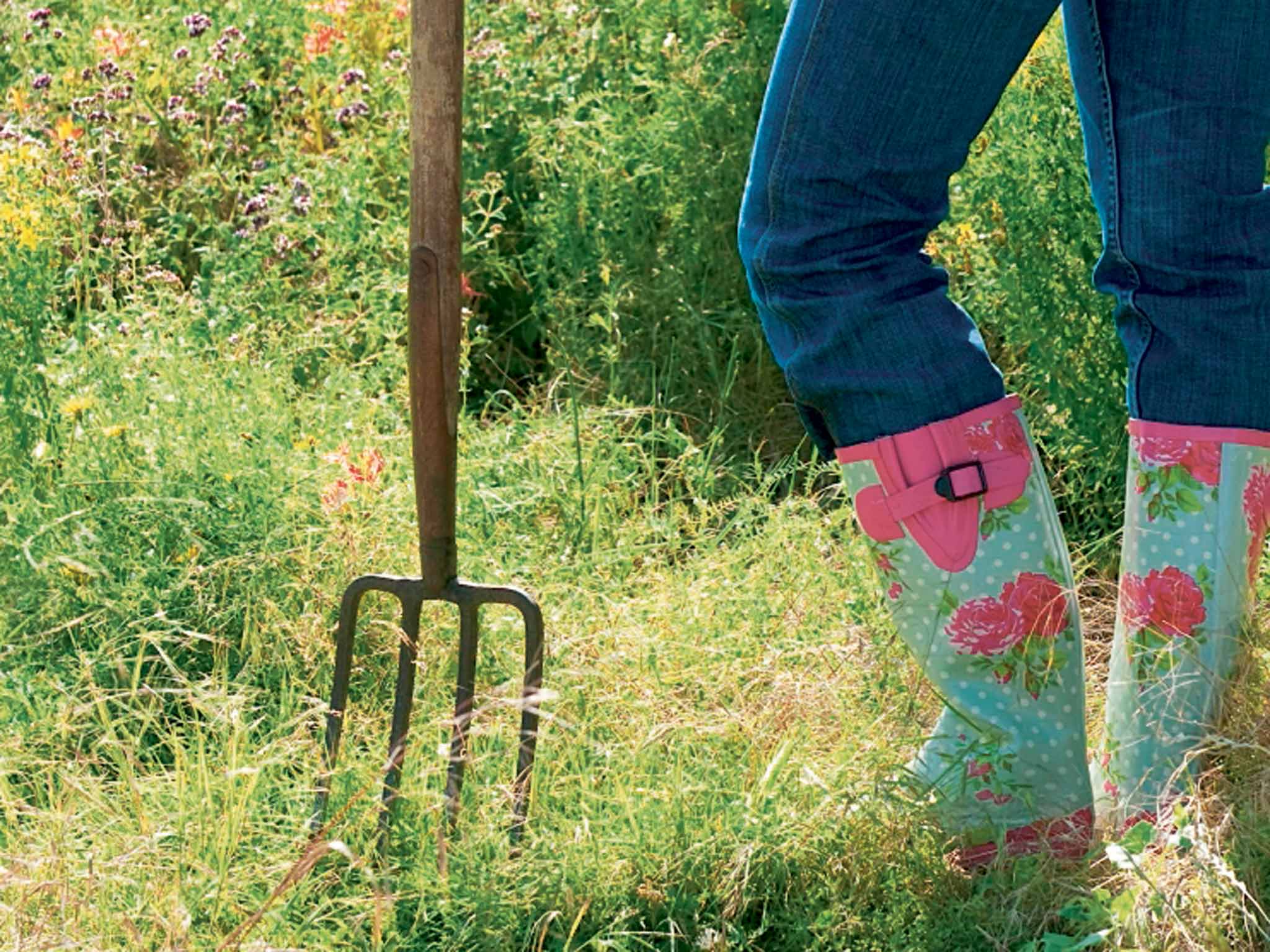How to declutter your garden: Emma Townshend's tips on clearing out
When it comes to decluttering, sometimes you just have to get on with it, says Emma Townshend

Your support helps us to tell the story
From reproductive rights to climate change to Big Tech, The Independent is on the ground when the story is developing. Whether it's investigating the financials of Elon Musk's pro-Trump PAC or producing our latest documentary, 'The A Word', which shines a light on the American women fighting for reproductive rights, we know how important it is to parse out the facts from the messaging.
At such a critical moment in US history, we need reporters on the ground. Your donation allows us to keep sending journalists to speak to both sides of the story.
The Independent is trusted by Americans across the entire political spectrum. And unlike many other quality news outlets, we choose not to lock Americans out of our reporting and analysis with paywalls. We believe quality journalism should be available to everyone, paid for by those who can afford it.
Your support makes all the difference.A friend of mine just joined the world's poshest gym. Normal gyms, they take your money and then someone comes round perhaps once a session, says hello to you, and occasionally gives you helpful training tips such as “That rowing machine is broken” or “Jeremy Kyle is funny, huh?” My friend's posh gym, on the other hand, gives you a heart monitor. Worse, they give you a heart monitor that can SEND EMAILS. One you have to put on when you start a workout, which measures how hard you've worked, and emails not just you but the gym boss (the gym boss!), to let you know when you've managed to clock a session of “sufficient effort”. And also, conversely, when you haven't.
It's amazing how differently we behave when we know someone is looking. Two weeks ago, my friend Louis, a landscaper, came over to help me do some garden clearance. Or, as we were calling it by about two hours into the process, “heavy horticultural hoarding therapy”. “Don't cut it all,” I started out saying, early in the day, “just cut a bit, and let me see how it looks.” Louis would patiently wield the secateurs and then I'd stand there, practically sobbing about the change.
I found excuses galore: “My mum gave me that!”; “I grew this from a cutting”; “The birds/bees/moths like that one…” I compromised, I bargained: “You can cut the really long branches off, but please can we leave the rest?” I composed long apologia: “I know, it's never looked good and it blocks all the light, but it would take ages to grow another one that big.” “Emma,” Louis would reply, “this plant is knackered. No matter how we prune it, it's never going to look good.”
My breakthrough came on my first run to the dump. I sat in a queue with a car full of tippings and thought about how the garden looked to Louis. Jesus, I said to myself at the traffic lights, I'm like one of those people on those programmes about hoarders who go through all the dump boxes, taking things back out. I'm one of those pitiful people who can't let go of anything. Who spends the whole programme turning tiny, self-involved circles around the person trying to help them. I drove back feeling chastened. I stepped out the back door and looked at the small area we'd managed to clear. “Let's cut more,” I said, without regret.
One of my biggest worries about dramatically changing the garden was the impact it could have on our local wildlife. To the east of where I live, there are 10 tidy gardens in a row: the kind of gardens that offer very little for birds and insects, bar a peanut feeder. My garden has always been overgrown, which makes it a good stopping-off point for more unusual garden birds, such as long-tailed tits, nuthatches and goldfinches. It also harbours toads, spiders and lots of beetles and bugs. So compromise was required in what we were about to do. For instance, we drastically cut back an elaeagnus (or silverberry), whose ugliness has always perplexed me, but watching the bees visiting the fragrant autumn blossom, I decided that it deserved a stay of (total) execution.
Now, the garden contains about 50 per cent less stuff. An elder tree which had spent most of the year as a rolling buffet for fat wood pigeons is gone, hacked by axes. My view of other people's loft extensions is still limited by frondy green, but now it's (mostly) frondy green I rather like, such as a big palm and the fresh green of magnolia leaves. And happily for me, there are still butterflies; this weekend a Meadow Brown – which I'm going to take as a sign that our hard work on clearance has been noted.
Tips on clearing out
Get a skip
They do cost a couple of hundred quid, and more if parking permits are in operation. But that does give you an incentive to fill the thing and it eliminates runs to the dump.
Call in a friend
Get someone who likes plants and will be gently encouraging. But, conversely, not someone who'll take your chuck-outs back out of the skip.
Sharpen your shears
Don't try to clear your garden with blunt tools you inherited from your grandma. Either sharpen up or buy some Felcos (£33.49 for a pair of Model 2s, amazon.co.uk).
Call in an expert
For larger clearance, there is nothing like a trained and licensed professional wielding a chainsaw. Not least because it offers great entertainment.
Join our commenting forum
Join thought-provoking conversations, follow other Independent readers and see their replies
Comments